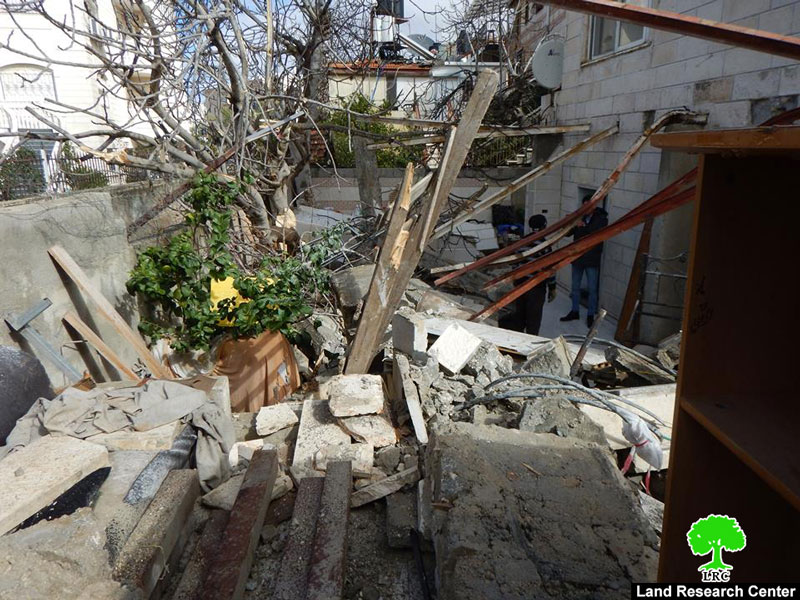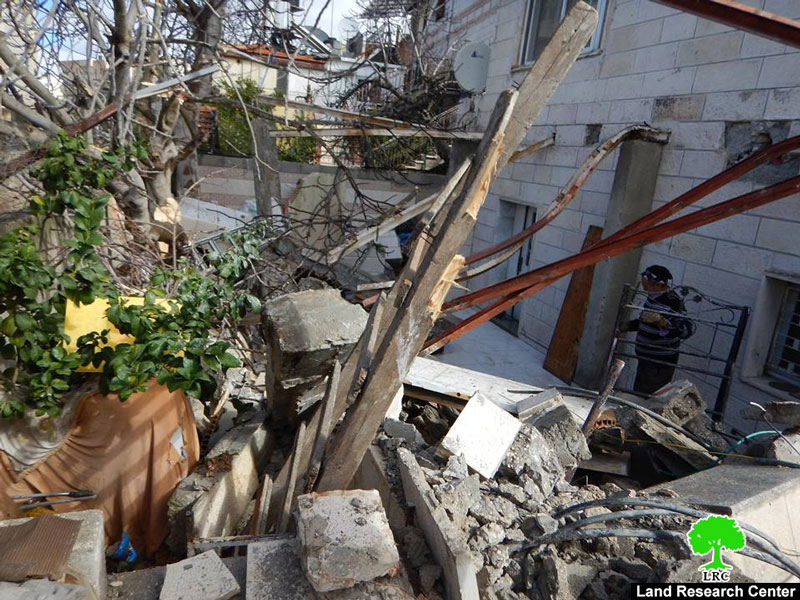2018-03-07
Israeli Occupation Forces demolish a storage in the village of Silwan
The occupation municipality’s bulldozers demolished on Wednesday morning, March 07, 2018, a brick room in Silwan town, south Al-Aqsa Mosque under the pretext of building without a permit. Reportedly, the house belongs to citizen Mohammad Oudeh.
Odeh explained that the municipality demolished the room nine months ago also on the claim of "unlicensed construction" and that he re-build it again in the same location to use it as a storage unit.
He also said municipality's dozer and police members raided the area and demolished the room for the second time without prior notice.
It should be marked that the town of Silwan is considered a "green area" according to Israel municipality. Noteworthy, construction on such area is prohibited. Obtaining building permits in such areas is almost impossible. Israel works hard to displace people and empty the area to serve colonial expansionist plans and to serve the colonization project.
Banning people from demographic expansion is an Israeli means to displace Jerusalemites and empty the city from its indigenous inhabitants.


About Silwan town:
It is one of Jerusalem's important neighborhoods and the closest to Al-Aqsa mosque. The town still accommodates heritage sites and monuments despite the vicious attack the occupation carries out to deface the history of the area. Noteworthy, the occupation carried out numerous excavations under beneath houses in the area and took over several homes to house more colonists in the town.
Land Research Center LRC sees that demolitions contradict with all of the International conventions and Humanitarian laws including:
- Article 17 of the (1948) Universal Declaration of Human Rights stating: “Everyone has the right to own property alone as well as in association with others. No one shall be arbitrarily deprived of his property.”
- Section ‹G› of article 23 of the (1907) The Hague Conventions asserting: “In addition to the prohibitions provided by special Conventions, it is especially forbidden to destroy or seize the enemy's property, unless such destruction or seizure be imperatively demanded by the necessities of war.”
- Article 53 of the Geneva Fourth Convention (1948) declaring: “Any destruction by the Occupying Power of real or personal property belonging individually or collectively to private persons, or to the State, or to other public authorities, or to social or cooperative organizations, is prohibited, except where such destruction is rendered absolutely necessary by military operations.”
- Section 1, Article 11 of the International Covenant on Economic, Social and Cultural Rights (1966): “The States Parties to the present Covenant recognize the right of everyone to an adequate standard of living for himself and his family, including adequate food, clothing and housing, and to the continuous improvement of living conditions. The States Parties will take appropriate steps to ensure the realization of this right, recognizing to this effect the essential importance of international co-operation based on free consent."
This case study is part of Kan'aan Project

